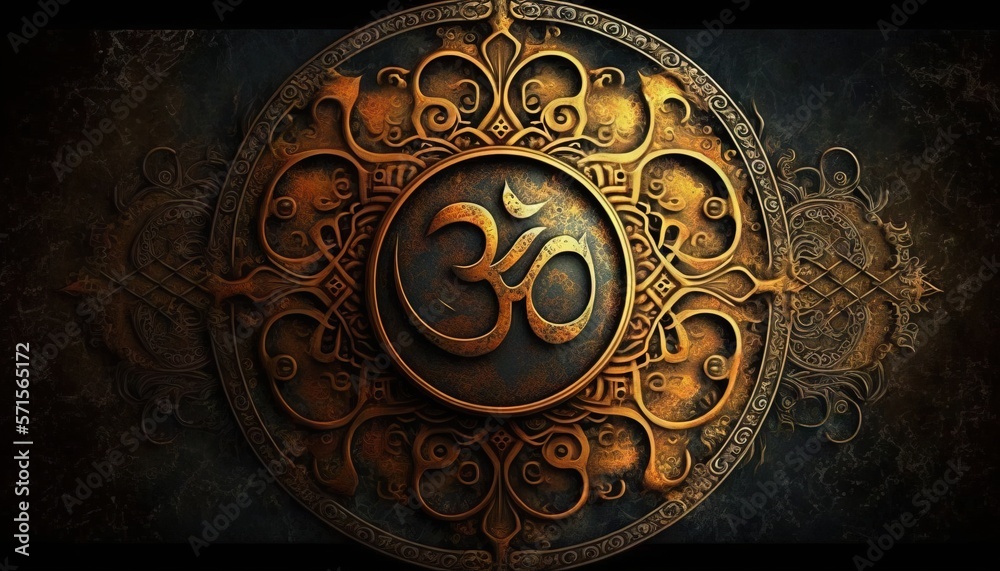
The Infinite Paths of Sanatan Dharma (Hinduism)
Finding Truth, Peace and Self-Realization – Reflections of an Agnostic
The true name of the path is Sanatan Dharma, a term that signifies the eternal, universal truth and moral order that governs the universe. However, the label “Hinduism” is one that has been given to this tradition by people outside the culture, often to categorize and define it within the framework of other world religions. The word “Hinduism,” in essence, is a Western construct, a term that doesn’t fully encapsulate the depth and the timeless nature of this spiritual and philosophical tradition. For the sake of clarity and simplicity, I will be using Sanatan Dharma and Hinduism interchangeably throughout this post, recognizing that they both refer to the same eternal path, but with Sanatan Dharma being the true essence of this way of life.
Being a Hindu is not merely an identification with a religion; it is a journey of self-discovery, a blend of culture, spirituality, and philosophy that has deeply influenced my worldview and my relationship with life. For me, been raised as a Hindu is an expression of connection—connection to one’s roots, to the world around me, and to the divine that resides in all things. It is a path billions of people have chosen and continue to walk, guided by principles that shape their understanding of existence and purpose.
1. A Spiritual Foundation of Unity in Diversity
One of the most compelling aspects that attracts me is the belief that it is a path of inclusivity and diversity. Unlike many other religious traditions, Hinduism doesn’t demand a single, dogmatic belief system. There is no one “correct” way to practice. Instead, it offers a vast spectrum of philosophies, practices, and deities, all pointing towards the same ultimate truth. Whether through devotion to a personal god like Vishnu, Shiva, or Durga or even Jesus, or the pursuit of self-realization through yoga and meditation, Hinduism recognizes the varied paths humans may take in their search for the divine. Hinduism realizes that one size does not fit all. Sanatan traditions very from region to region, state to state and even from family to family – all based on tradition mixed with personal experiences over centuries.
This pluralistic approach resonates with me deeply. It allows me to embrace different aspects of life without feeling boxed in or constrained by rigid definitions. I can appreciate the beauty of other religious traditions, while still staying rooted in my own beliefs, knowing that all paths lead toward the same ultimate goal: peace, love, and self-realization.
2. A Connection to Ancestral Wisdom
Being Hindu also connects me to a long lineage of wisdom. The ancient scriptures of the Vedas, the Upanishads, and the Bhagavad Gita are not just texts; they are lifelines, offering guidance on everything from the nature of reality to the importance of compassion in daily life. These texts are timeless, containing insights that transcend culture and era, speaking to the universal truths of human existence.
Growing up, I often heard my elders speak of the stories and teachings of Hindu mythology—tales of gods, goddesses, and heroes who overcame challenges, showing the importance of dharma (righteous duty), karma (action and its consequences), and moksha (liberation). These stories have shaped my moral compass, helping me navigate life’s complexities with a sense of purpose and integrity.
3. The Pursuit of Inner Peace
A core tenet of Hinduism is the pursuit of inner peace through self-awareness and spiritual discipline. Meditation, yoga, and mindfulness are not just practices but integral aspects of Hinduism that offer a roadmap to self-realization. These practices have taught me to connect with my inner self, to still the mind, and to find harmony within.
Yoga, in particular, is transformative. It is not just a physical exercise but a spiritual practice that brings the body and mind into alignment. The discipline of yoga teaches one to be present in the moment, to focus one’s thoughts, and to cultivate compassion for oneself and others. This pursuit of balance and tranquility is a key reason why Hinduism speaks to a lot of people—it offers practical tools for cultivating peace in a chaotic world.
4. Respect for Nature and the Environment
Hinduism has a deep respect for nature and the environment, seeing divinity in all living things. The belief in the interconnectedness of all life is central to the religion. Whether it’s the reverence for the cow as a sacred animal, the worship of rivers like the Ganga as goddesses, or the understanding that every plant, tree, and animal has a role to play in the ecosystem, Hinduism teaches that nature is a sacred manifestation of the divine.
This worldview encourages me to live with greater awareness and respect for the earth and its resources. The sense of responsibility to care for the planet and all its creatures is not just an ethical obligation, but a spiritual one—a natural extension of my respect for nature.
5. The Freedom to Question and Evolve
Hinduism encourages an open mind and allows for questioning. It does not demand blind faith but invites introspection and personal experience. The very nature of Hinduism as a philosophy and way of life encourages exploration, adaptation, and growth. Over time, my understanding of my faith has evolved. It’s not a static belief system; it’s a living, breathing tradition that invites inquiry and personal interpretation.
This freedom to evolve spiritually and intellectually is another reason why Hinduism is different from traditional religions. It allows one to make one’s faith my own, to embrace new insights while remaining grounded in the timeless wisdom of my ancestors.
6. The Respect for Knowledge and the Freedom of Belief
A unique and beautiful aspect of Hinduism is that it recognizes the value of knowledge and intellectual freedom, regardless of one’s beliefs. There is no concept of blasphemy in Hinduism. You are not condemned for questioning or challenging established ideas. In fact, Hinduism values diverse viewpoints and encourages open dialogue and intellectual exploration.
One remarkable example of this is the reverence given to Charvaka, an ancient Indian philosopher who lived around 3000 years ago and was an outspoken atheist. Despite his skepticism towards religious rituals and the existence of a personal god, Charvaka is still revered in Hindu tradition as a learned sage. This respect for his knowledge, rather than his religious beliefs, underscores the Hindu approach: it’s not about conformity but about the pursuit of truth, wisdom, and understanding.
Unlike many other religions, Hinduism does not have an institution that excommunicates people for holding differing beliefs. No one is cast out or shamed for questioning the divine, for choosing a different path, or for not adhering to a prescribed doctrine. This absence of the fear of excommunication or punishment creates a spiritual environment where one is free to explore, learn, and grow without fear of judgment.
7. No Word for ‘Religion’ in Hinduism
A critical point that makes Hinduism unique is that there is no single word in the language that directly translates to “religion” as understood in the Western sense. The term “religion” often implies a system of beliefs and practices based on the worship of a higher power or deity, with a defined set of rituals and doctrines. However, Hinduism is more accurately understood as dharma, a concept that encompasses a way of life, moral order, and a spiritual path rather than a fixed set of beliefs. It is a living philosophy that focuses on right action, truth, and personal growth, and it allows each individual the freedom to explore, question, and evolve.
This lack of a singular term for religion reflects the fact that Hinduism is not confined to a rigid set of rules or beliefs. It is a dynamic and inclusive tradition that welcomes a variety of ideas, perspectives, and practices. Hinduism is not about fitting into a preordained box but about the freedom to live in harmony with the universe, to seek self-realization, and to pursue inner peace.
8. The Four Paths to Salvation (Moksha)
One of the most profound aspects of Hinduism is its recognition that there is no one “correct” path to spiritual liberation (moksha). Instead, Hinduism offers four main paths, each suited to different temperaments and inclinations, allowing for a deeply personal journey towards salvation.
- Bhakti Yoga (The Path of Devotion): This path focuses on devotion to a personal deity, surrendering oneself in love and service. For those with a deep emotional connection to the divine, this path offers the possibility of liberation through pure devotion and surrender. No deity is specified. It could be Shiva or Vishnu or Jesus or another incarnation in which one sees the reflection of the divine.
- Jnana Yoga (The Path of Knowledge): For the intellectual and philosophical seeker, Jnana Yoga is the pursuit of self-realization through wisdom and knowledge. It involves the study of philosophical, mathematical or scientific areas, meditation, and deep contemplation to discern the true nature of reality.
- Karma Yoga (The Path of Selfless Action): This path is for those who seek liberation through selfless service. By dedicating one’s righteous & selfless actions to the divine, without attachment to the results, a person can transcend ego and attain spiritual freedom.
- Raja Yoga (The Path of Meditation): This path focuses on meditation and disciplined mental practice, offering a method for controlling the mind and achieving union with the divine through focused concentration and inner peace.
These four paths recognize that people are different, and there is no one-size-fits-all approach to spiritual growth. They give me the freedom to choose the path that resonates with me, or even to integrate elements of each as I walk my own spiritual journey.
9. A Sense of Community and Belonging
Hinduism offers a deep sense of community, especially through festivals, rituals, and shared cultural practices. Celebrating Diwali, Holi, Navratri, or any of the numerous other festivals that mark the Hindu calendar strengthens my bond with family and friends. These celebrations are more than just festive occasions—they are moments of reflection, gratitude, and connection to something larger than oneself.
In the temple or at home, performing rituals with loved ones brings a sense of belonging that transcends time and place. It connects one with generations before her/him, binding one to a lineage of faith, tradition, and love.
10. A Holistic Understanding of Life and Death
Hinduism’s view of life and death offers one comfort and understanding. The belief in reincarnation and the cycle of samsara (birth, death, and rebirth) helps one make sense of life’s inevitable challenges. The idea that we are all part of a continuous cycle of transformation reminds me that life is not just about the present moment but also about growth, evolution, and the ultimate liberation of suffering.
Conclusion
Because Hinduism offers a comprehensive, flexible, and deeply personal approach to understanding life, the universe, and the self. It allows one to explore spirituality in a way that feels authentic, grounded in ancient wisdom yet open to modern interpretations. It connects one to one’s heritage, community, and the divine in a way that feels both liberating and fulfilling.
In a world that is often fragmented by divisions of belief and identity, Hinduism reminds me that truth is vast, multifaceted, and available to all who seek it. And for that reason, I think this practice resonates with billion of people especially in these modern times where people are questioning establish beliefs and Science is unravelling mysteries of nature.



